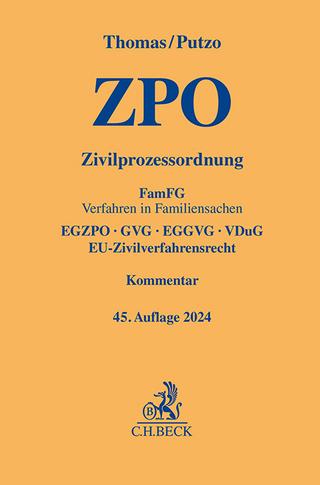
Global Legal Insights
Global Legal Group Ltd (Verlag)
978-1-83918-361-4 (ISBN)
Over 2,000 years ago, Marcus Tullius
Cicero coined the pithy phrase ‘the more laws a society has, the less
justice’ to describe the unintended consequence of excessive regulation and
over-prescription of law. Whether it is
to legislate for permitted hours of outdoor activity during a pandemic, the
length of bananas for sale within a free market, or the interpretation of
arcane rules of parliament, the Roman philosopher’s words apply more today than
ever before, as society tolerates an excess of intrusive rules amidst a
bottomless ocean of rules and regulations.
But is the tide turning?
The rapid explosion of ‘lawfare’, a modern
term used to describe the use of legal systems and institutions to damage and
delegitimise an opponent, risks bringing the rule of law into disrepute by
eroding the credibility of international legal systems and procedures, and
rendering amorphous the otherwise immutable institutions comprising the
separation of powers. Whether it is
domestic politics (Gina Miller and Brexit in 2018–2019) or international
geopolitics (the International Court of Justice of the UN; the International
Criminal Court), the integrity of and respect for the rule of law is only as
good as the conduct of those responsible for the pursuit of it – and the
respect society holds for the institution authorised to dispense it. To encourage and indulge the narrative of ‘lawfare’
achieves little, when so often it appears to offer only the oxygen of publicity
for political gain.
There is also a concerning increase in
judicial activism. The unedifying
spectacle of former Supreme Court judges signing a letter to advance a political
opinion on the Middle East was a nadir of unprecedented depth, only to be met
by a response from other former Supreme Court judges to disagree – and point
out an error in their analysis. In
another example, a serving district judge was rebuked for not disclosing his
social media support for a political cause in a trial over which he presided, when
he failed to punish the three defendants found guilty of terrorism offences. Their offences were committed at a protest
for the same political cause. Despite
the public rebuke, the judge remains one of only four judicial commissioners of
the Judicial Appointment Commission, responsible for appointing new judges. He said his social media engagement was a
mistake. There is a new government in
the UK led by a former human rights lawyer, accompanied by other human rights
lawyers in key legal roles. With their
hands finally on the levers of executive power, perhaps the human rights
lawyers can slow down the unrelenting enthusiasm for lawfare and judicial
activism. Don’t bait the breath.
In other developments, the Supreme Court clarified
in Lipton v BA Cityflyer Ltd [2024] UKSC 24 the applicable law for
pre-Brexit causes of action, stating that they remain unaffected by the repeal
of the European Communities Act due to the presumption against retrospective
legislation. Arbitration lawyers
continue to wait patiently for the long-awaited update to the Arbitration Act
1996. The Arbitration Bill was slated
for the legislative process in 2023, but was delayed earlier this year by the
General Election, and is now back on the agenda for this parliamentary year. Other legislative activity is expected in the
form of the Litigation Funding Agreements (Enforceability) Bill, introduced on
19 March 2024, which aims to address (and reverse) the decision in the PACCAR
Inc and others v Competition Appeal Tribunal [2023] UKSC 28 that held that
litigation funding agreements entitling funders to payment based on recovered
damages are damages-based agreements, which, unless they meet the statutory
requirements, are unenforceable (and the majority did not). This will be a relief to many in the funding
industry who provide access to justice for so many, illustrated perfectly in
the Post Office scandal, which rose to mainstream prominence in an ITV drama
explaining the scandal and the litigation that followed.
As always, this book is intended as a tool
for those who wish to explore the developments across a variety of
jurisdictions. I am grateful to the many
contributors to this book for their updates.
Preface
Justin Michaelson
Quinn Emanuel Urquhart & Sullivan
Expert analysis chapters
1 An exception to the exception: The use of frozen funds in the context of a proprietary freezing injunction
Justin Michaelson & Simon Camilleri
Quinn Emanuel Urquhart & Sullivan
7 Expert qualification after Kyocera
Kenneth R. Adamo, Law Office of KRAdamo
Eugene Goryunov, Haynes and Boone, LLP
Jurisdiction chapters
11 Austria
Stephan Lenzhofer & Laura Sophie Moser
Herbst Kinsky Rechtsanwälte GmbH
20 Cayman Islands
Ian Huskisson, Anna Peccarino & Neil McLarnon
Travers Thorp Alberga
31 England & Wales
Richard Hornshaw & Jay Jamooji
Akin
42 Germany
Jochen Lehmann & Vladimir Krahn
GÖRG Partnerschaft von Rechtsanwälten mbB
54 Ghana
Gwendy Bannerman, Naa Kwaamah Owusu-Baafi, Lilian Kodjoe & Emmanuel Agyarko Mintah
N. Dowuona & Company
69 Greece
Spyros G. Alexandris & Charilaos (Harry) Agathos
Bahas, Gramatidis & Partners
84 India
Manisha Singh & Swati Mittal
LexOrbis
94 Japan
Shinya Tago, Takuya Uenishi & Landry Guesdon
Iwata Godo
110 Kenya
John Maina & Kenneth Likoko
OLM Law Advocates LLP
122 Liechtenstein
Manuel Walser & Daria Tschütscher
Walser Attorneys at Law Ltd.
132 Malaysia
Jack Yow & Kwong Chiew Ee
Rahmat Lim & Partners
142 Mexico
Miguel Angel Hernandez-Romo Valencia & Miguel Angel Hernandez Romo
Foley & Lardner México, S.C.
150 Myanmar
Nishant Choudhary, Rohan Bishayee, Mar Mar Aung & Kyaw Kyaw Han
DFDL Myanmar
161 North Macedonia
Vladimir Boshnjakovski
Boshnjakovski & Grozdanov Law Office
172 Norway
Jacob S. Bjønness-Jacobsen, Christoffer O. Simonsen & Rebecca C. Gudbrandsen
Advokatfirmaet Grette AS
183 Pakistan
Qasim Wadud, Waleed Ahmad Jadoon & Tahiya Usman
Legal Oracles
196 Switzerland
Michael A. Schifferli
Wenger Plattner
210 Thailand
Michael Ramirez & Chayathorn Kruatao
Tilleke & Gibbins
220 USA
Kenneth R. Adamo, Law Office of KRAdamo
Eugene Goryunov, Haynes and Boone, LLP
| Erscheinungsdatum | 22.08.2024 |
|---|---|
| Reihe/Serie | Global Legal Insights - Litigation & Dispute Resolution ; 13 |
| Verlagsort | London |
| Sprache | englisch |
| Maße | 153 x 246 mm |
| Themenwelt | Recht / Steuern ► Allgemeines / Lexika |
| Recht / Steuern ► EU / Internationales Recht | |
| Recht / Steuern ► Privatrecht / Bürgerliches Recht ► Zivilverfahrensrecht | |
| ISBN-10 | 1-83918-361-6 / 1839183616 |
| ISBN-13 | 978-1-83918-361-4 / 9781839183614 |
| Zustand | Neuware |
| Haben Sie eine Frage zum Produkt? |
aus dem Bereich


